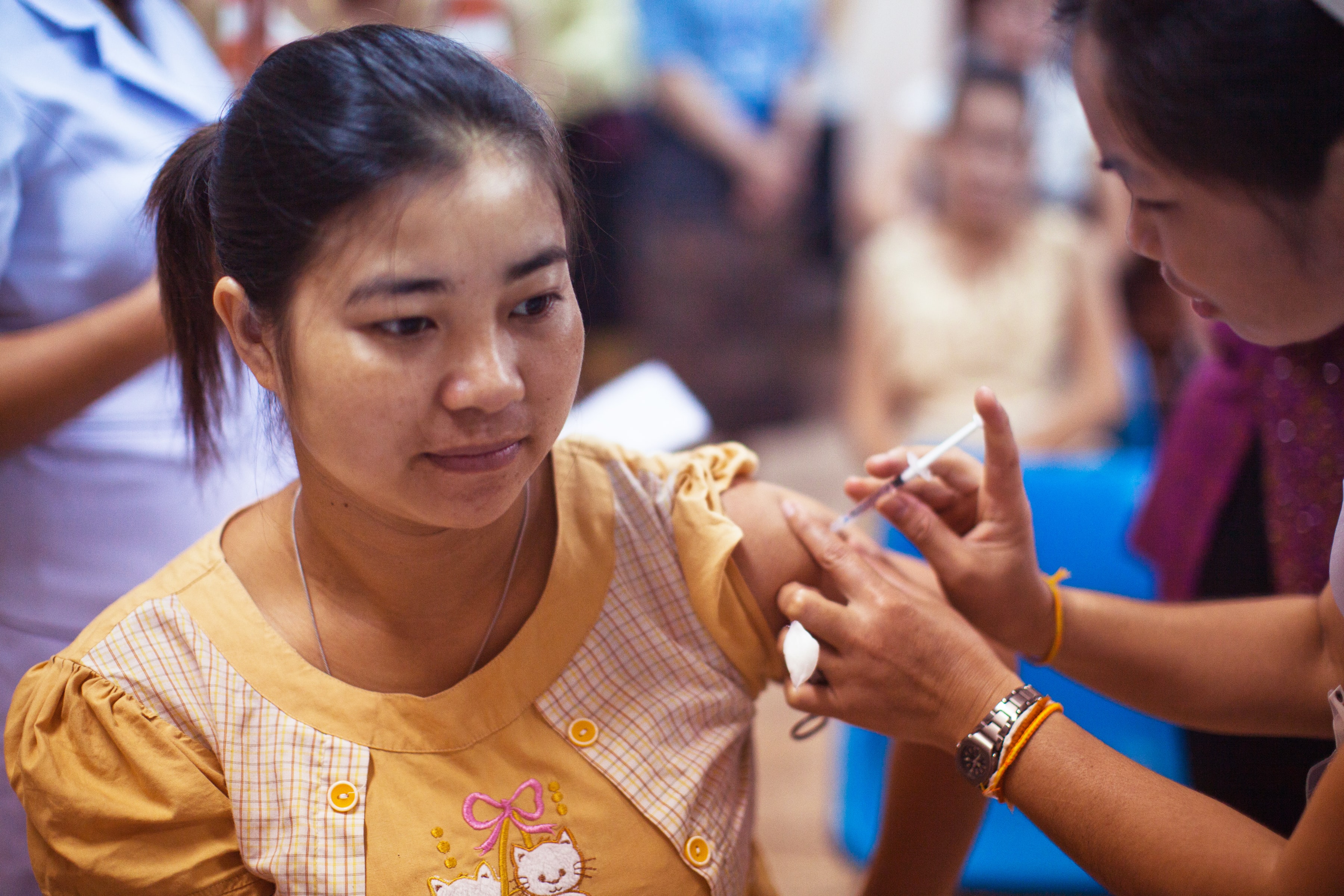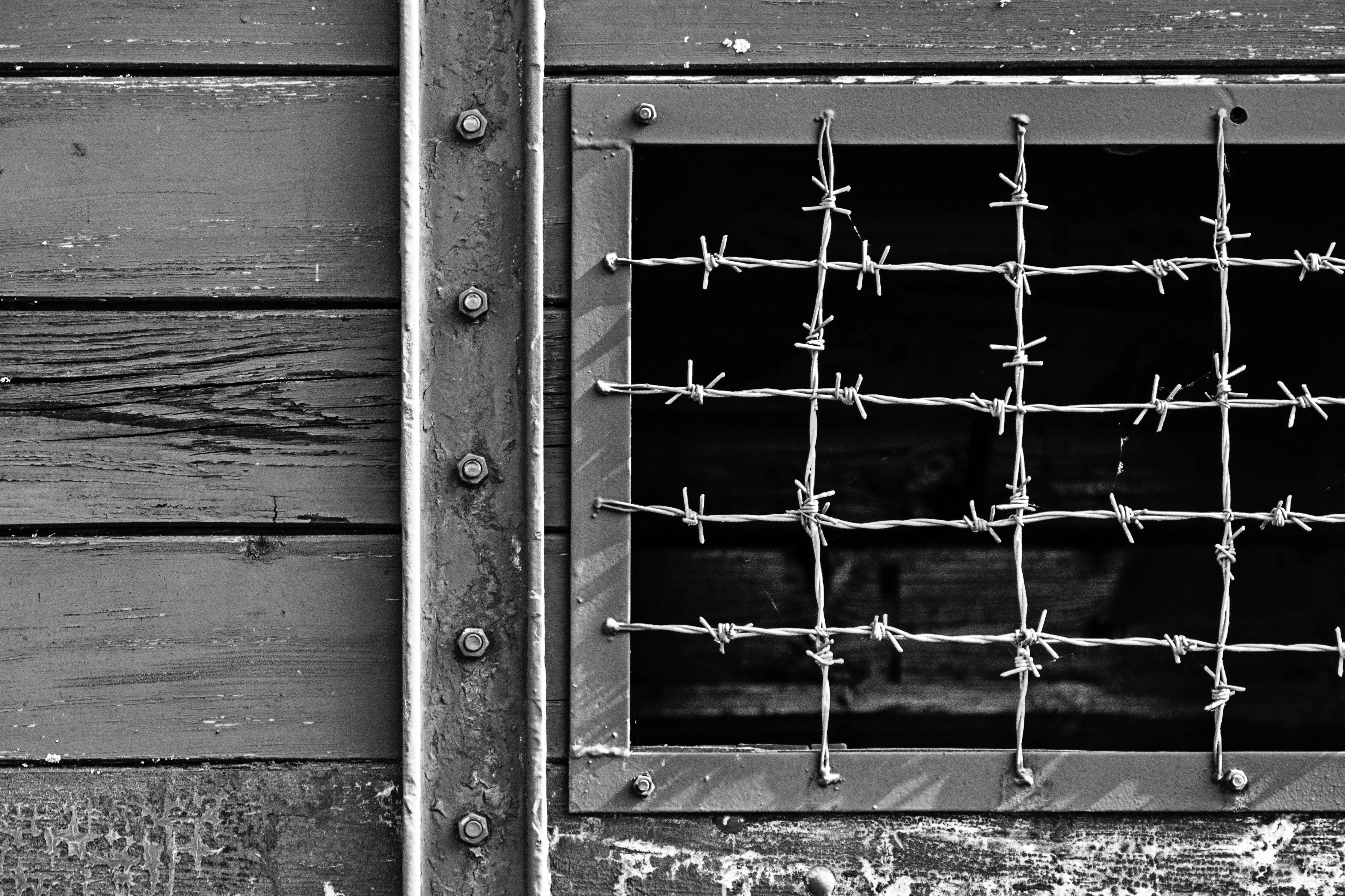We tell ourselves that pestilence is a mere bogy of the mind, a bad dream that will pass away. However, it does not always pass away and, from one bad dream to another, it is men who pass away
Albert Camus, The Plague
In today’s global war against COVID-19, each country is fighting with all the resources available. The most accessible option currently at hand is public awareness, namely educating populations on social distancing measures, using masks, hand washing and other sanitary measures. Social media and online news are playing a vital role in spreading awareness on the pandemic, and internet access allows people to stay continuously informed of updates on the situation. Unfortunately, it is difficult for communities in the Global South both to comply with such measures and to get access to this health information in the first place.
In Bangladesh, in the midst of the current pandemic, the government has imposed an internet ban in the Rohingya refugee camps. Having fled from discrimination and genocidal practices in Myanmar, the Rohingya population has been scattered across numerous refugee camps in South East Asia since 2015. One million Rohingya refugees are currently living in Cox’s Bazar’s 34 refugee camps, surviving in cramped conditions and without access to reliable information sources. The spread of the coronavirus in these circumstances would cause innumerable deaths among a community already victim to countless violence and atrocities. It is therefore vital that internet access be restored, and safety measures be implemented to prevent unnecessary loss of life. The UN resolution on the promotion, protection and enjoyment of human rights on the Internet explicitly condemns ‘measures aiming to or that intentionally prevent or disrupt access to or dissemination of information online’ as a violation of international human rights law (UN Human Rights Council, 2016). In our modern age, access to the internet is itself a human right in that it allows for the accessing of other rights outlined in the UDHR, from freedom of expression to seeking information to obtaining healthcare.
The first coronavirus case in Cox’s Bazar was identified on March 24th. Since then, the camps have been under official lockdown (BBC, April 9, 2020). The Cox’s Bazar local administration locked down the entire district on April 8th, to combat the further spread of COVID-19. Around 300 designated isolation units have already been built so far, and the securing of isolation facilities, ambulances and 24/7 health facilities is ongoing. Furthermore, the UNHCR has stated that planning is underway to prepare 1,700 beds for isolation and treatment across Cox’s Bazar and dedicate a thousand of those beds to Rohingya refugees (Dhaka Tribune, April 17, 2020). Additional beds will be set up at several sites with land availability and operational capacity.
While emergency health facilities are being set up, refugees continue to live in unsanitary conditions. In the crowded camps, many families are packed into makeshift shelters and stalls made of tarpaulin sheets and bamboo sticks. The Rohingya refugees are living in plastic sacks side by side, at 40,000 people per square kilometer, without any option but to stay put. Such conditions are more than 40 times the average population density in Bangladesh. Each shack is barely 10 square meters, and many are overcrowded with up to twelve occupants. Needless to say, social distancing is impossible to implement in these circumstances. Moreover, the Rohingya are forced to dump garbage in open spaces outside, right next to where they live and sleep (The Times of India, April 3, 2020). This would be a fertile breeding ground for any kind of virus. Amidst the COVID-19 pandemic, the unhygienic, crowded living conditions in the camps make refugees the most vulnerable to contracting the virus. In addition to overcrowding and a lack of hygiene, Rohingya refugees are also left at the mercy of recurring storms in the region. Nor’ westers cause significant damage to life and property during the months of April and May in Bangladesh, especially in coastal areas such as Cox’s Bazar and Chittagong. The meteorology office has already forecasted such storms in the near future (New Age Bangladesh, February 23, 2020). In the face of violent hurricane-speed winds and thunder, how will the inhabitants of these fragile camp shelters survive without access to relevant scientific and public health information?
Due to internet restrictions enforced by the Bangladeshi government, aid workers and camp staff are unable to efficiently inform camp residents about the upcoming threats, both from the weather and the virus. Instead, they must share such information face to face, putting their health at great risk. NGO and camp personnel who are working alongside Rohingya feel that they are jeopardizing their own safety unnecessarily because of a lack of better methods to keep refugees informed (International Federation for Human Rights, April 2, 2020). Under these circumstances it is therefore urgent to lift the internet ban so that even the most basic health information can reach the refugee population speedily without aid workers exposing themselves and others to risks of infection.
Limited internet access is indeed a huge barrier to spreading awareness about the current health situation. While NGOs have conducted many faces to face information sessions, it is impossible to ensure that everyone is equally informed without internet access (Rohingya Youth Association, March 19, 2020). The WHO is now trying to ensure that camp residents understand basic risk-reducing prevention methods by encouraging communication through radio, video and messages passed on by Imams and other community leaders (UNICEF Bangladesh, 2020). But is it possible to spread such vital information efficiently through such meagre means? Instead, these WHO and NGO-led sessions increase the risk of spreading the virus quickly as they concentrate large numbers in the same location.
Language is an additional barrier to information-sharing and access to crucial health updates. To address the lack of accessible information, the Rohingya refugee community has had to make informative videos on prevention measures in their own language (Rohingya Film School, March 22,2020). But in the absence of internet, refugees are forced to share these videos through Airdrop or mobile data sharing, which also require proximity to others and thus increase health risks (Rohingya Film School, April 10, 2020). The solution to these issues seems like an easy one: to avoid meetings and in-person sessions, the only option is to restore full internet access.
In a joint open letter to the Bangladeshi Prime Minister, 50 human rights groups called on the government to lift communication restrictions in Rohingya refugee camps amid the COVID-19 pandemic (HRW, 2020). As a host country, Bangladesh has a duty to ensure freedom of expression and digital rights to the Rohingya refugees (UNHCR, May 2007). While many in the refugee community are illiterate, the host country should still strive to use appropriate and accessible means of communication to keep these communities informed, such as providing internet (HRW, 2019).
Health is a human right and during such times the regular flow of information should be considered a necessity rather than a privilege. Free internet access will provide assurance to uninformed communities and help encourage amenability towards prevention strategies and planning. It would help camp authorities enforce the proper implementation of social distancing and sanitation measures. This kind of assurance might also help stop panic among the refugees and avoid widespread fear and confusion. To this end aid organizations have also repeatedly voiced their concerns regarding the necessity of free internet access to ensure regular communication with the millions of refugees they are providing aid to (Joint Response Plan for Rohingya Humanitarian Crisis, 2019). A lack of free access to the internet undermines the capacity of humanitarian agencies to circulate information to refugees and thus to provide for their needs adequately and efficiently. Without internet, it is impossible to get in touch with refugees who need help or to coordinate emergency responses with aid workers, both of which are crucial in a time of pandemic.
During such difficult times, it is absurd to restrict information (Refugee International, 2020). Trapped, living in cramped conditions and under lockdown, Cox’s Bazar is nearly comparable to a zoo. In the spirit of solidarity and the right to information, let us listen to the voice of the Rohingya people. Let us provide them with what the rest of the world relies on for crucial health information and reassurance: internet.
Rohingyas, as well as other refugee populations stuck outside of their national borders, are scared. All over the world, states are focusing on their citizens, through repatriation flights and the closure of borders to foreigners. But the Rohingya are stateless – who will care for them? Who will listen to their cries? As things currently stand, their cries risk being lost in a sea of other pleas arising from the pandemic.
References
BBC. (April 9, 2020) ‘Coronavirus: Bangladesh locks down a million in Rohingya camps’ [online]. Available at: https://www.bbc.com/news/world-asia-52227924
bdnews24. (April 2020) ‘7 houses on lockdown in Teknaf as RAB man tests positive for the coronavirus’ [online]. Available at: https://bdnews24.com/bangladesh/2020/04/04/7-houses-on-lockdown-in-teknaf-as-rab-man-tests-positive-for-the-coronavirus
Camus, A. (1948) The Plague, trans. Gilbert, The Modern Library, p.35
Dhaka Tribune. (April 17, 2020) ‘Rohingya camps under risk as tests slow down’ [online]. Available at: https://www.dhakatribune.com/bangladesh/2020/04/17/coronavirus-rohingya-camps-under-risk-as-tests-slow-down
Human Rights Watch. (2019) “Are We Not Human? Denial of Education for Rohingya Refugee Children in Bangladesh” [online video]. Available at: https://www.hrw.org/report/2019/12/03/are-we-not-human/denial-education-rohingya-refugee-children-bangladesh
Human Rights Watch. (2020) “COVID-19, A human Rights Checklist” [online]. Available at: https://www.hrw.org/news/2020/04/14/covid-19-human-rights-checklist#
International Federation for Human Rights. (April 2, 2020) ‘Remove restrictions on communication in Rohingya refugee camps amid COVID-19 outbreak’ [online]. Available at: https://www.fidh.org/en/region/asia/bangladesh/remove-restrictions-on-communication-in-rohingya-refugee-camps-amid
New Age Bangladesh. (February 23, 2020) ‘Thunderstorms likely in mid-week as temperature jumps’ [online]. Available at: https://www.newagebd.net/article/100304/thunderstorm-likely-in-mid-week-as-temperature-jumps
Refugees International [@RefugeesIntl]. (April 4, 2020) “The lack of trust in government authorities, or credible communications, has limited the rise of leadership among the #Rohingya.” Tweet [online].
Rohingya Film School [@rohingya_film]. (March 22, 2020) “Informative video on #COVID19 and its preventive measures, by Rohingya for Rohingya in #Rohingya #language.” Tweet [online]. Available at: https://twitter.com/rohingya_film/status/1241626136284520448?s=20
Rohingya Film School [@rohingya_film]. (April 10, 2020) Sharing informative videos to refugees mobile so they can be aware about coronavirus using Shareit (Offline wifi sharing technology) Information is Power, Awareness is best prevention. #coronavirus #COVIDー19 #COVID @UNHCR_BGD @IOMBangladesh https://twitter.com/rohingya_film/status/1248522602206752768?s=20
Rohingya Film School [@rohingya_film]. (April 13, 2020) “@rohingya_film continue door to door awareness campaign and distributed leaflets to #Rohingya refugee.” Tweet [online]. Available at: https://twitter.com/rohingya_film/status/1249640392598798336?s=20
Rohingya Youth Association [@RYA_Rohingya]. (March 19,2020) “Coronavirus (COVID-19) Awareness Training Date” Tweet [online]. Available at: https://twitter.com/RYA_Rohingya/status/1240486405349888001?s=20
Safi, M. (2017) ‘Myanmar treatment of Rohingyas looks like ‘a textbook example of ethnic cleansing’ , The Guardian, 11 September [online]. Available at: https://www.theguardian.com/world/2017/sep/11/un-myanmars-treatment-of-rohingya-textbook-example-of-ethnic-cleansing
Save The Children. (March 24, 2020) ‘First confirmed coronavirus case in Cox’s Bazar exposes how our systems fail the most vulnerable’ [online]. Available at: https://www.savethechildren.net/blog/first-confirmed-coronavirus-case-cox%E2%80%99s-bazar-exposes-how-our-systems-fail-most-vulnerable
The Times of India. (April 3, 2020) ‘Crowded in camps, Rohingya refugees are vulnerable to the virus’ [online]. Available at: https://timesofindia.indiatimes.com/world/south-asia/crowded-in-camps-rohingya-refugees-vulnerable-to-virus/articleshow/74959673.cms
UNHCR. (2019) ‘Joint Response Plan for Rohingya Humanitarian Crisis’, January-December, 2019, PART II: SECTOR STRATEGIES, (ix) Communication with Communities, p. 47 [online pdf]. Available at: http://reporting.unhcr.org/sites/default/files/2019%20JRP%20for%20Rohingya%20Humanitarian%20Crisis%20%28February%202019%29.comp_.pdf
UNHCR, the UN Refugee Agency [@Refugees]. (2020, April 8) We’re racing against time to protect Rohingya refugees and their host communities from coronavirus. Our @CorlissUNHCR explains our work in Bangladesh: https://twitter.com/Refugees/status/1247822798975897600?s=20
UNHCR. (2007) ‘Analysis of Gaps in the Protection of Rohingya Refugees’, p. 17 [online]. Available at: https://www.unhcr.org/46fa1af32.pdf
UNICEF Bangladesh [@UNICEFBD]. (2020, April 4) “Spread the word. Awareness raising on #COVID19 is vital.” Tweet [online]. Available at: https://twitter.com/UNICEFBD/status/1247868495716421633?s=20
UN Human Rights Council. (June 27, 2016) ‘The promotion, protection and enjoyment of human rights on the Internet’ [online]. Available at: https://www.article19.org/data/files/Internet_Statement_Adopted.pdf




Thank you so much for writing this. I’ve never had such an eloquent description for what I do.
It is such inhumane act to refuse the basic things a man needs to survive, know and grow. Thank you for letting the world know about these atrocities.